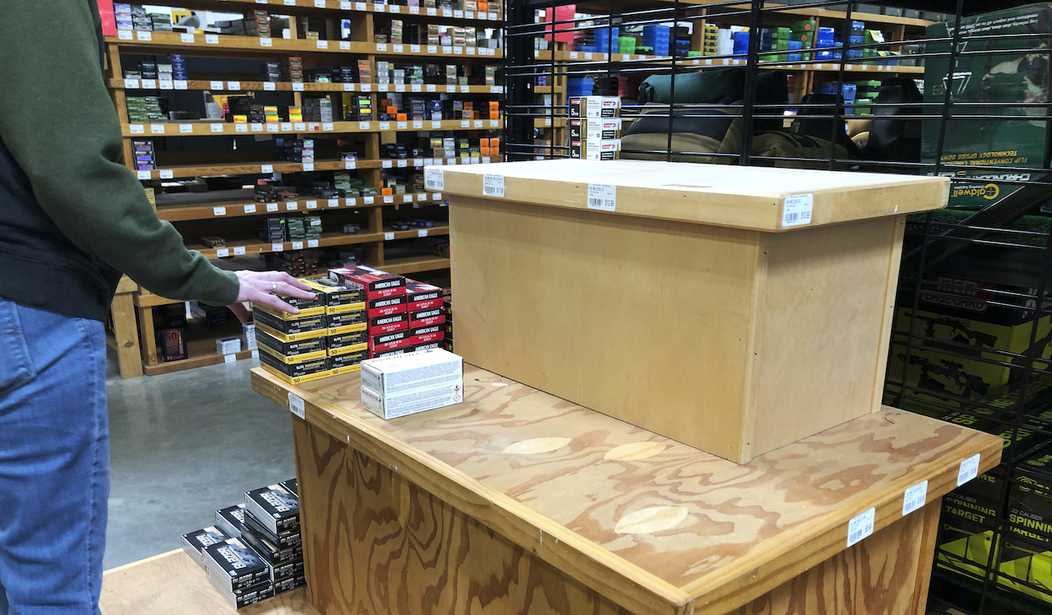We won’t have to wait long to hear what Pennsylvania Gov. Tom Wolf says in response to the lawsuit filed Friday afternoon by attorneys Joshua Prince and Adam Kraut over his order declaring that all “non-life sustaining businesses” must close in the state, which apparently includes gun stores (though they aren’t mentioned by name).
Prince announced the lawsuit on his Twitter feed Friday afternoon, and according to the attorney the state Supreme Court has ordered Wolf to respond by 8 p.m. this evening.
Emergency, Ex Parte Injunction Sought Against Pennsylvania Governor Wolf Regarding COVID-19 Order https://t.co/mzCOcN4mak pic.twitter.com/5gA4ioo8nC
— Joshua Prince (@SigForLife) March 20, 2020
The suit filed by Prince on behalf of himself, Trop Gun Shop, and gun owner Roger Mullins, doesn’t specifically make a Second Amendment-based argument, but rather lays out the case that Wolf doesn’t have the authority to force the closure of gun stores and other businesses in the first place.
Pursuant to 35 Pa.C.S. § 7301, in order for a Governor to declare a disaster emergency, there first must be a “disaster.” 35 Pa.C.S. § 7102 defines the term “disaster” to mean “[a] man-made disaster, natural disaster, or war-caused disaster.” Continuing through the terms, the General Assembly defined “natural disaster” to include “[a]ny hurricane, tornado, storm, flood, high water, winddriven water, tidal wave, earthquake, landslide, mudslide, snowstorm, drought, fire, explosion or other catastrophe which results in substantial damage to property, hardship, suffering or possible loss of life.” Notably absent from the definition of a “natural disaster” is anything pertaining to plague, disease, viruses, etc. In fact, all of the enumerated disasters speak to weather-related events, save for explosions, and pursuant to 1 Pa.C.S. § 1932, must be read in pari materia. Taking the words in context, there is nothing to suggest that the General Assembly sought to include a plague, disease, virus or pandemic in the term “natural disaster.”
Since the coronavirus pandemic is not a “disaster” under the current definition in Pennsylvania law, Prince and Kraut argue, Wolf’s order simply cannot be valid. Even if it is, however, the pair believe that the laws of Pennsylvania don’t empower any governor to simply order broad swaths of the economy to shut down.
35 Pa. C.S. § 7301(f)(8) makes explicitly clear that during states of emergency, the Governor only has the statutory authority to regulate the sale, dispensing, and transportation of certain goods in commerce – namely alcoholic beverages, firearms, explosives and combustibles. The General Assembly elected to provide an exclusive list of the businesses over which the Governor could exert authority under emergency circumstances – and they did so in 35 Pa.C.S. § 7301(f)(8). The Governor’s Order of March 19, 2020 now seemingly argues that 35 Pa.C.S. § 7301(f)(7) provides him with the authority to close all other Commonwealth businesses. If his contention were accurate, and 35 Pa.C.S. § 7301(f)(7) provided him with the ability to regulate and forcibly close any and all Commonwealth business he deemed necessary, then the language of 35 Pa.C.S. § 7301(f)(8) would serve no purpose and would constitute mere surplusage. The rules of statutory construction outlined supra prevent such an interpretation and as a result, require that the Order of March 19, 2020 be enjoined.
The pair also correctly note the vagueness of Wolf’s order when it comes to firearms retailers, who aren’t mentioned by name in the list of businesses that are considered life-sustaining, as well as the industries that Wolf has ordered closed.
Notably, the Commonwealth’s Firearms Retailers have been left with insufficient guidance as to their potential status as “life sustaining.” While the Order notes that 35 Pa.C.S. § 7301(f) purports to empower the Governor to “suspend or limit the sale, dispensing, or transportation of alcoholic beverages, firearms, and combustibles,” the Order clearly neglects to actually invoke this power. In fact, in the aforementioned list of life-sustaining business types, “Beer, Wine and Liquor Stores” are determined by Governor to be life-sustaining and may remain open for business. See, Exhibit A at pg. 5. Firearms retail is not included on the Governor’s list at all. In fact, the Order is so unconstitutionally vague – and perhaps purposefully so – that the Governor made a point to highlight his purported statutory authority to regulate firearms during a state of emergency, while choosing not to actually do so. The Governor’s silence on the classification of Firearms Retail businesses as “life-sustaining” furthers this line of reasoning. By remaining vague, the Governor hopes he can force Commonwealth businesses into closing their doors, without requiring him to expend the political capital of expressly doing so and thereafter having the restriction struck down as unconstitutional.
One of the biggest challenges in having a court grant an injunction against Wolf’s order is the fact that, in order to be granted, the plaintiffs have to show that the “public interest” will not be harmed if the injunction is put in place. Wolf’s argument will simply be that these extraordinary measures must remain in effect for the public safety, but Prince and Kraut say that Wolf’s “cure” is simply worse than the disease.
As the public policy of the Commonwealth does not favor unconstitutional or ultra vires acts, an injunction furthers public policy.
I suspect that’s not going to be a winning argument, especially if Wolf’s response gets into specific, eye-popping numbers about the possible number of coronavirus victims he’s trying to prevent by ordering these industries to close down. Judges tend to give broad leeway to governments during times of emergency, and while Prince and Kraut raise a good point about unconstitutional acts during a state of emergency, I won’t be shocked if the Pennsylvania Supreme Court rules in Wolf’s favor. The lawsuit would continue, of course, but the order would remain in place in the meantime.









